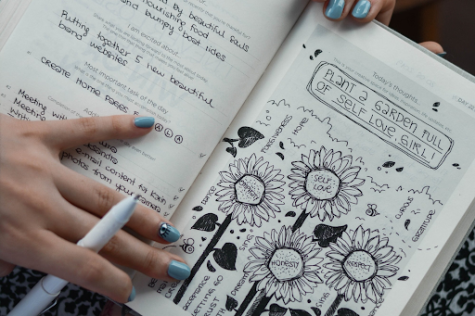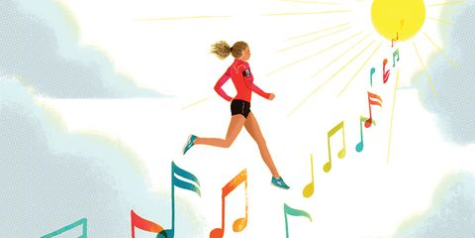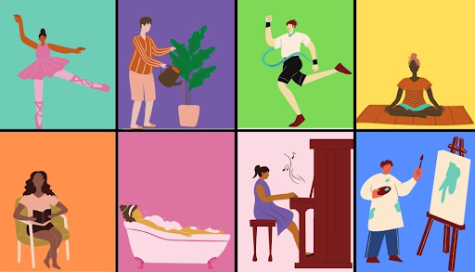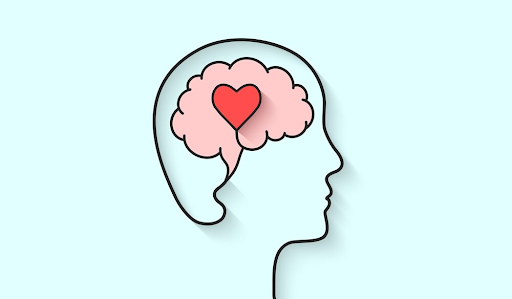Mental Health Protocols During Winter Break
February 13, 2022
Winter break means different things for different people. Some people love going to school, and others love nothing more than a long break from school. Breaks from homework are much needed and appreciated, however mental health shouldn’t stop being a priority during break. Homework for a healthy mindset and a healthy body are due every day, all day. Habits are formed quickly, and three weeks of no work is enough time for unexpected habits. Students should know how to become- or stay- mentally and physically healthy.

- Writing/Journaling: Writing down one’s current feelings is more helpful than one might think. Sometimes, minds don’t allow the person to feel what they are feeling. These mental blocks result in an overwhelming amount of unresolved thoughts and feelings that need to be dealt with. The University of Rochester Medical Center agrees that, “keeping a journal can help you identify what’s causing that stress or anxiety. Once you’ve identified your stressors, you can work on a plan to resolve the problems and reduce your stress.” Journaling doesn’t magically solve mental health issues, but it helps in prioritizing and coping with said issues. Mental Health America says to, “Include 3 things you were grateful for and 3 things you were able to accomplish each day” for a start. This helps with depressing thoughts and to instead, look on the bright side. This is also a tactic used in therapy called balancing. Journaling is the first step towards healing and improving mental health.

- Exercise: The word “exercise” might be a trigger word for some people. That word has been linked with many doubts such as; “I’m not good enough,” “I need to lose weight,”and “I hate exercise.” Exercise isn’t just a way to lose weight, it’s also a way to release endorphins. According to WebMD, “Endorphins act as analgesics, which means they diminish the perception of pain. They also act as sedatives” which is why many people work hard to get that runner’s high. Running isn’t the only form of exercise that releases endorphins, a simple walk to a local Starbucks will do the trick. This has people feeling good about themselves throughout the day since it gives them a feeling of accomplishment and self-worth. It helps with negative thoughts surrounding self-esteem and makes one feel more confident about themselves and about life. The pro’s of exercise don’t stop there. Johns Hopkins Medicine has confirmed that, “moderate aerobic exercise increases the amount of slow wave [or delta wave] sleep you get. [Delta ] wave sleep refers to deep sleep, where the brain and body have a chance to rejuvenate.” Working out not only helps with falling asleep, but also helps with having the right kind of sleep. Deep sleep that refreshes the mind and body is perfect for those who have trouble sleeping due to anxiety, stress and/or depression.
- Hobbies: This is a great way to flourish in something one loves. Hobbies not only give people something to do, but they also give people a chance to find something they’re good at. This improves self-esteem while also giving people something fun to be passionate about. 7 Summit Pathways explained how depression and anxiety creates negative thoughts and feelings, which is why, “Hobbies provide you with an active way you can fight these feelings and reclaim your mental health.” Due to all the free time winter break offers, many students may have started to fill up their time with bad habits. These bad habits could be anything from binge eating to constantly being on social media. In order to avoid these time-wasting activities, one should fill them by participating in hobbies that benefit themselves. Some of these activities include reading, listening to/playing music and painting/drawing. Finding a hobby might take some trial and error, but once found, that hobby can become very enjoyable and relaxing.


